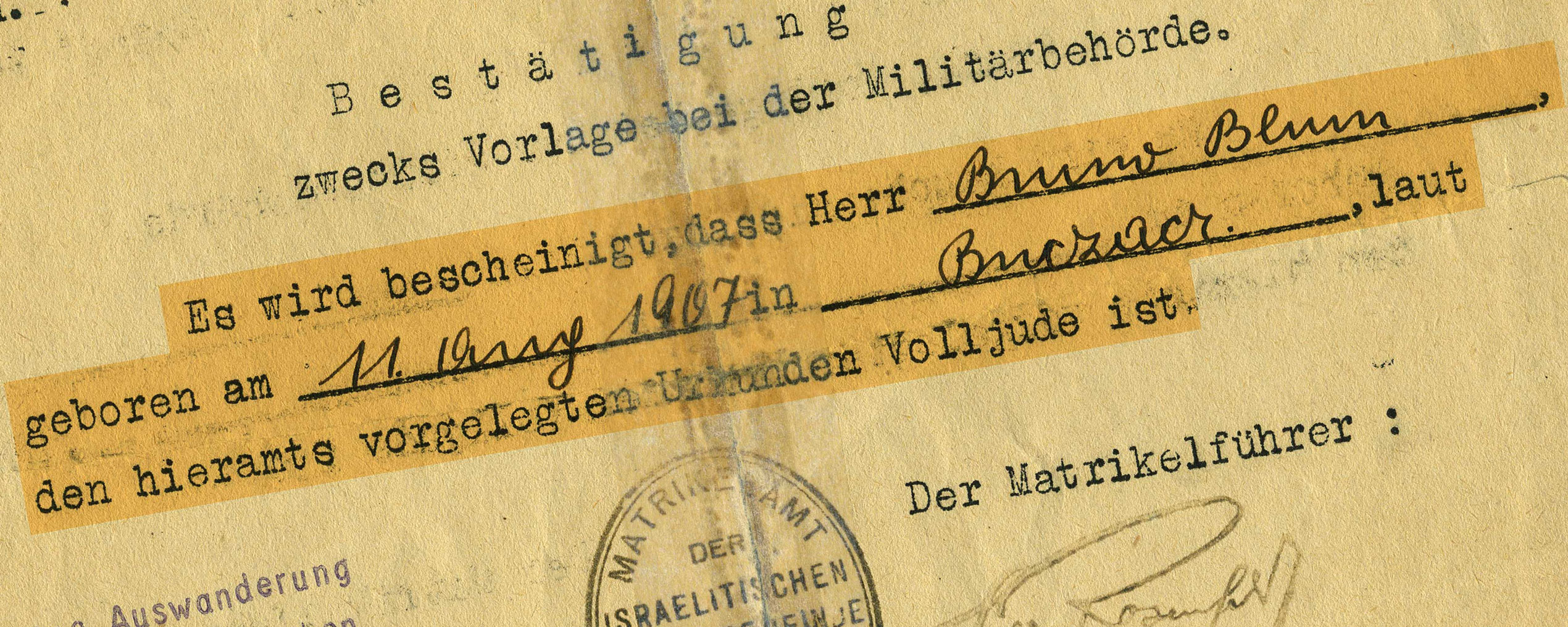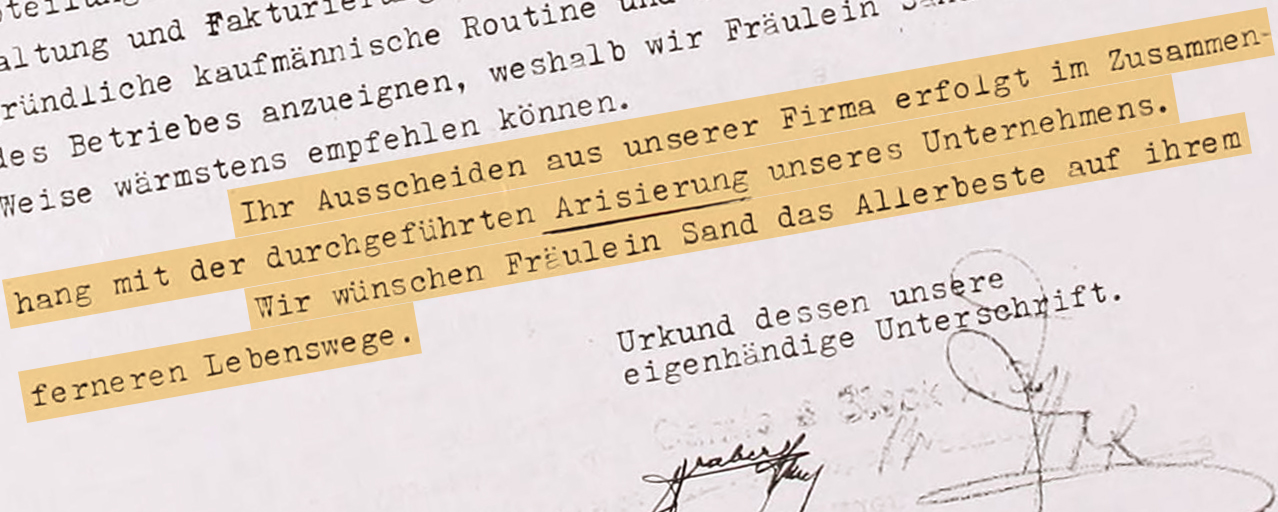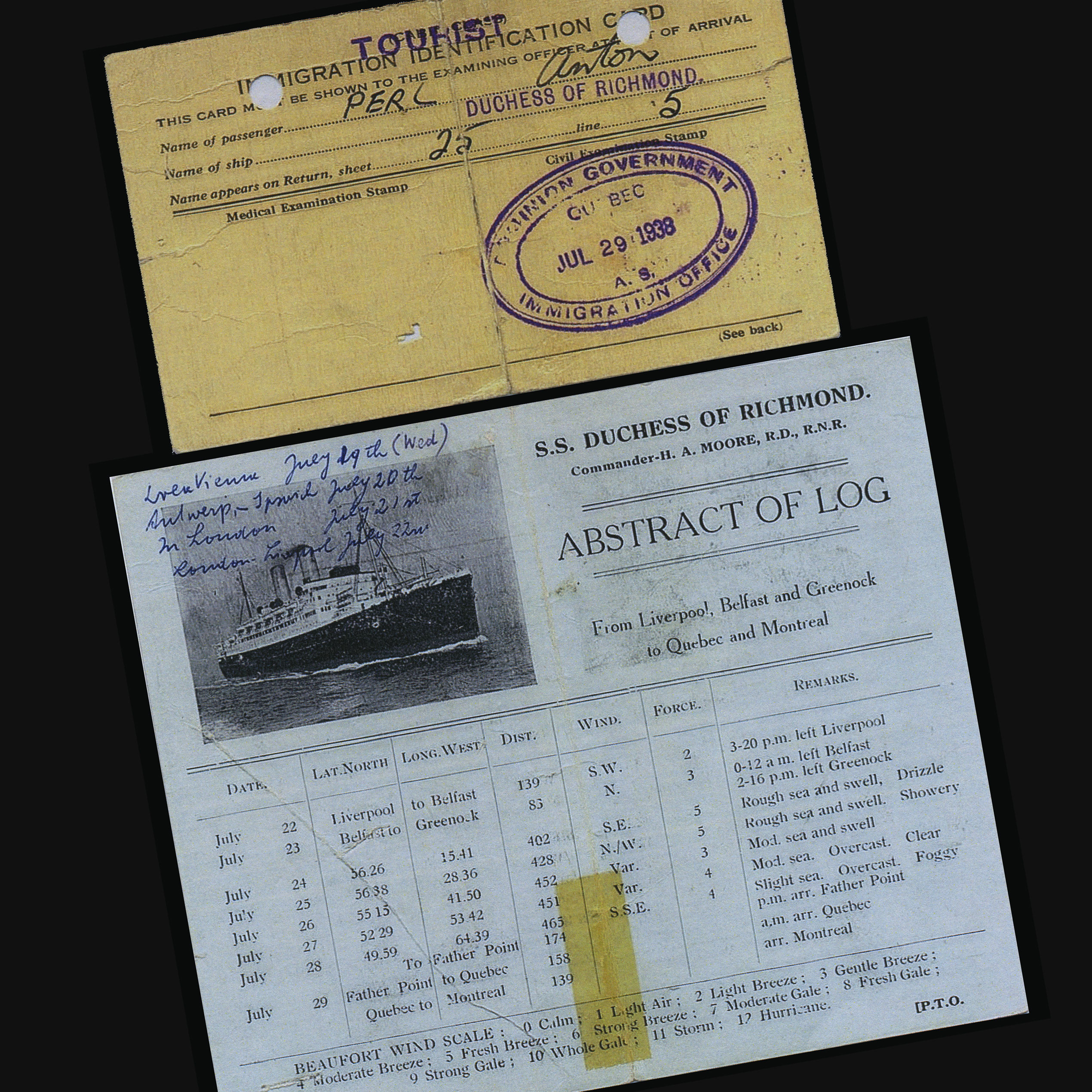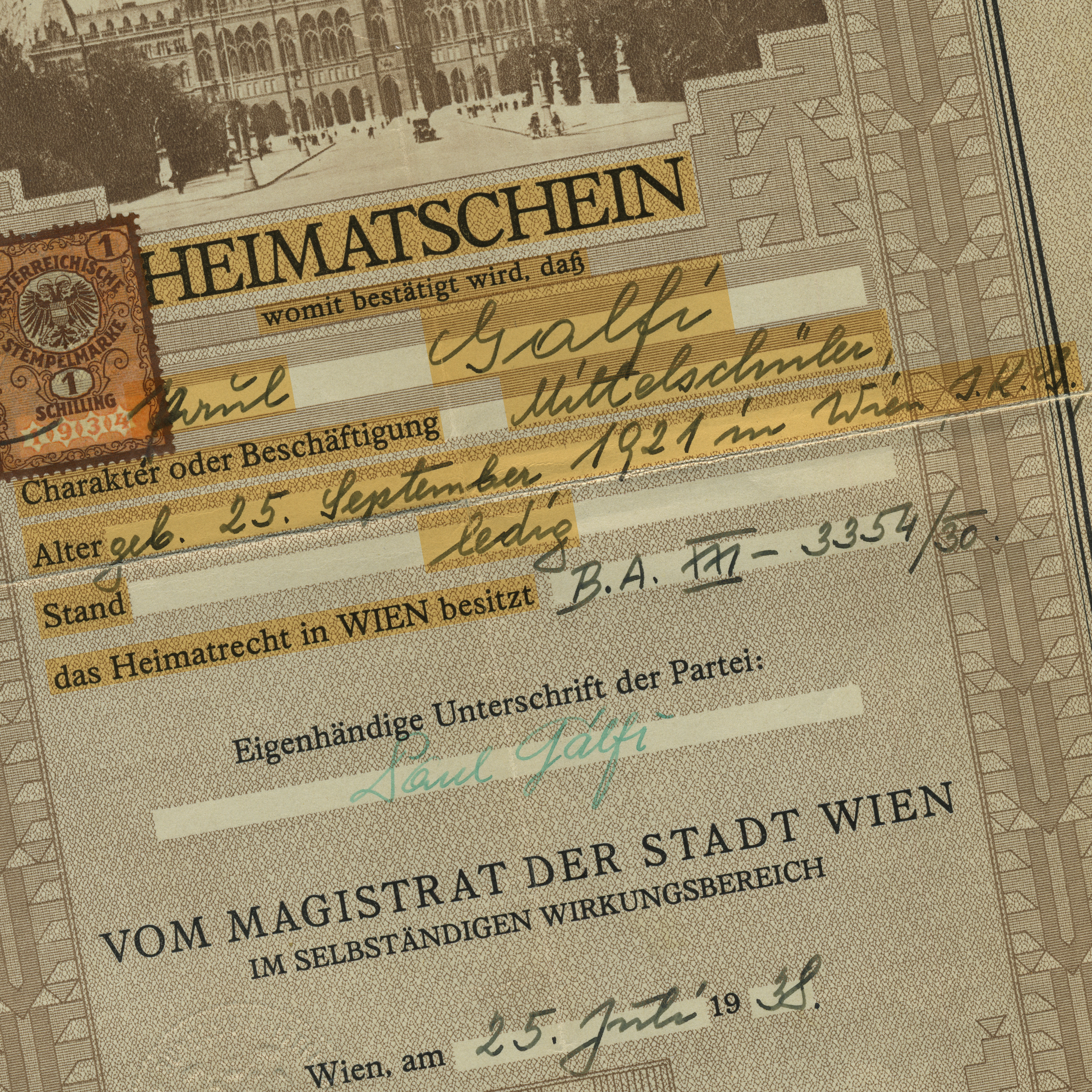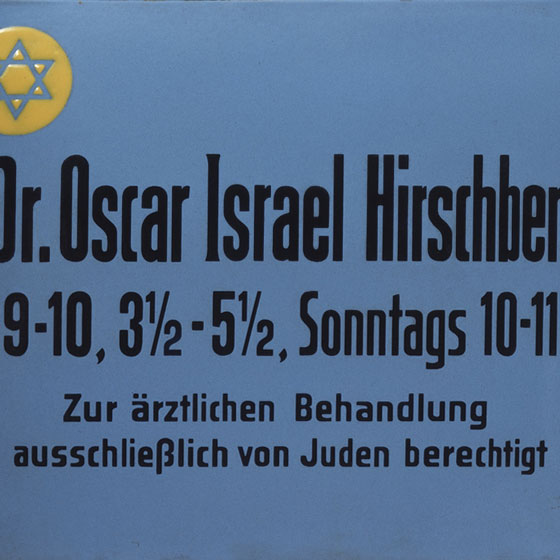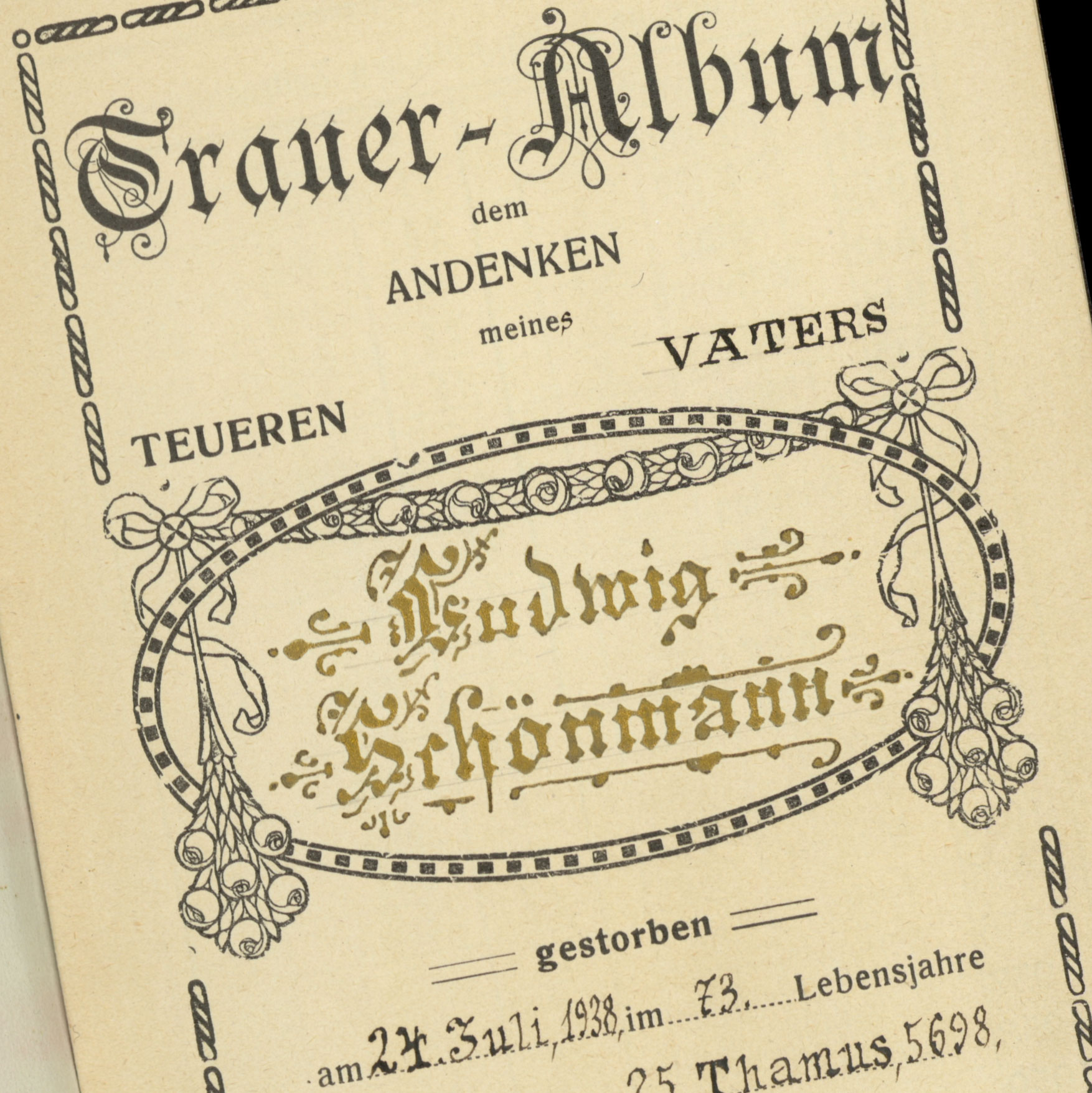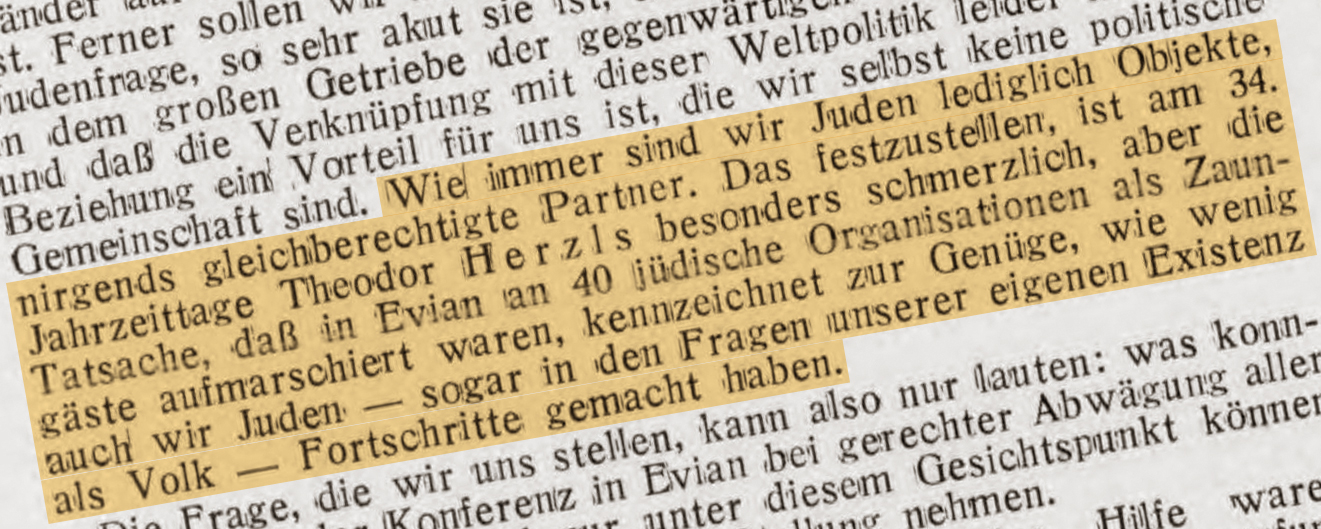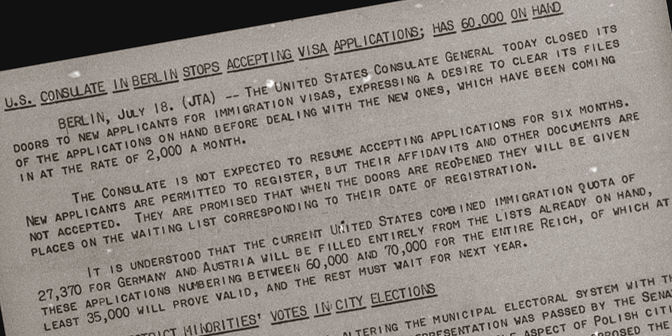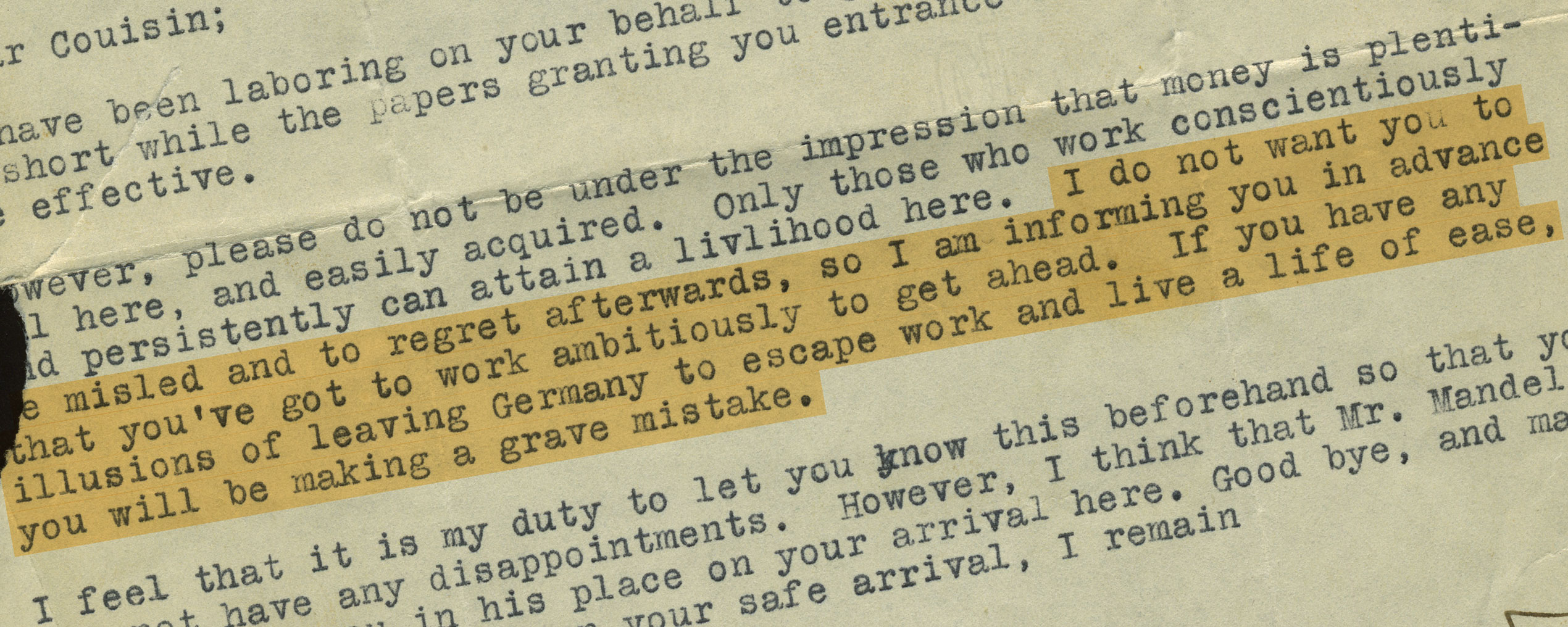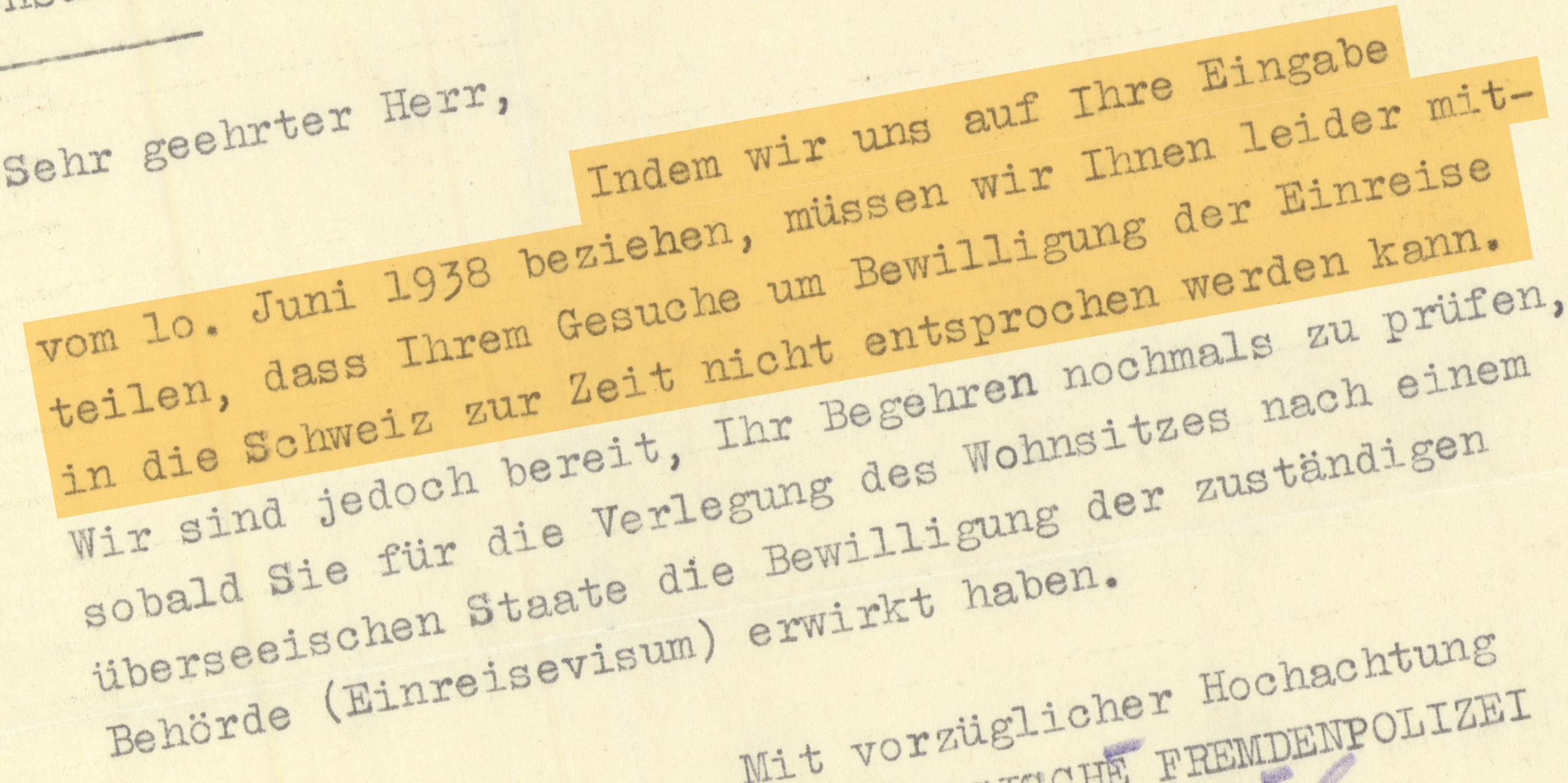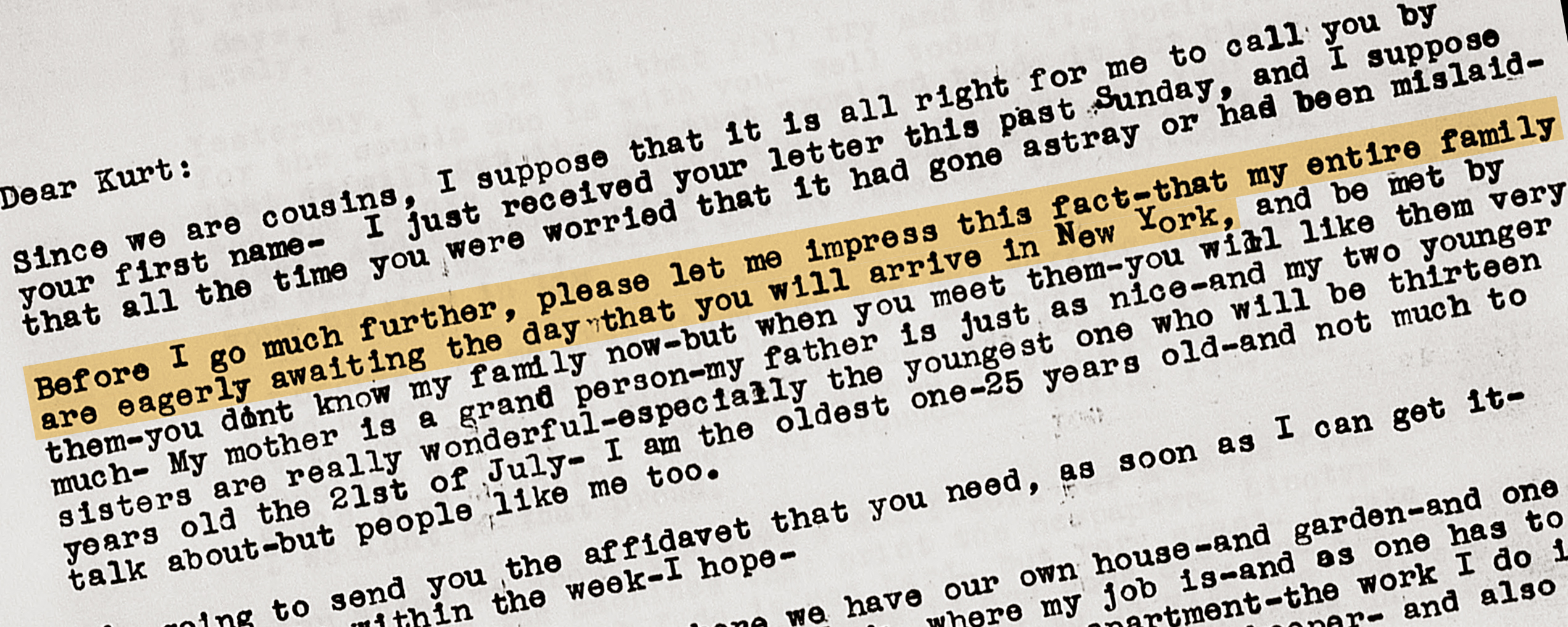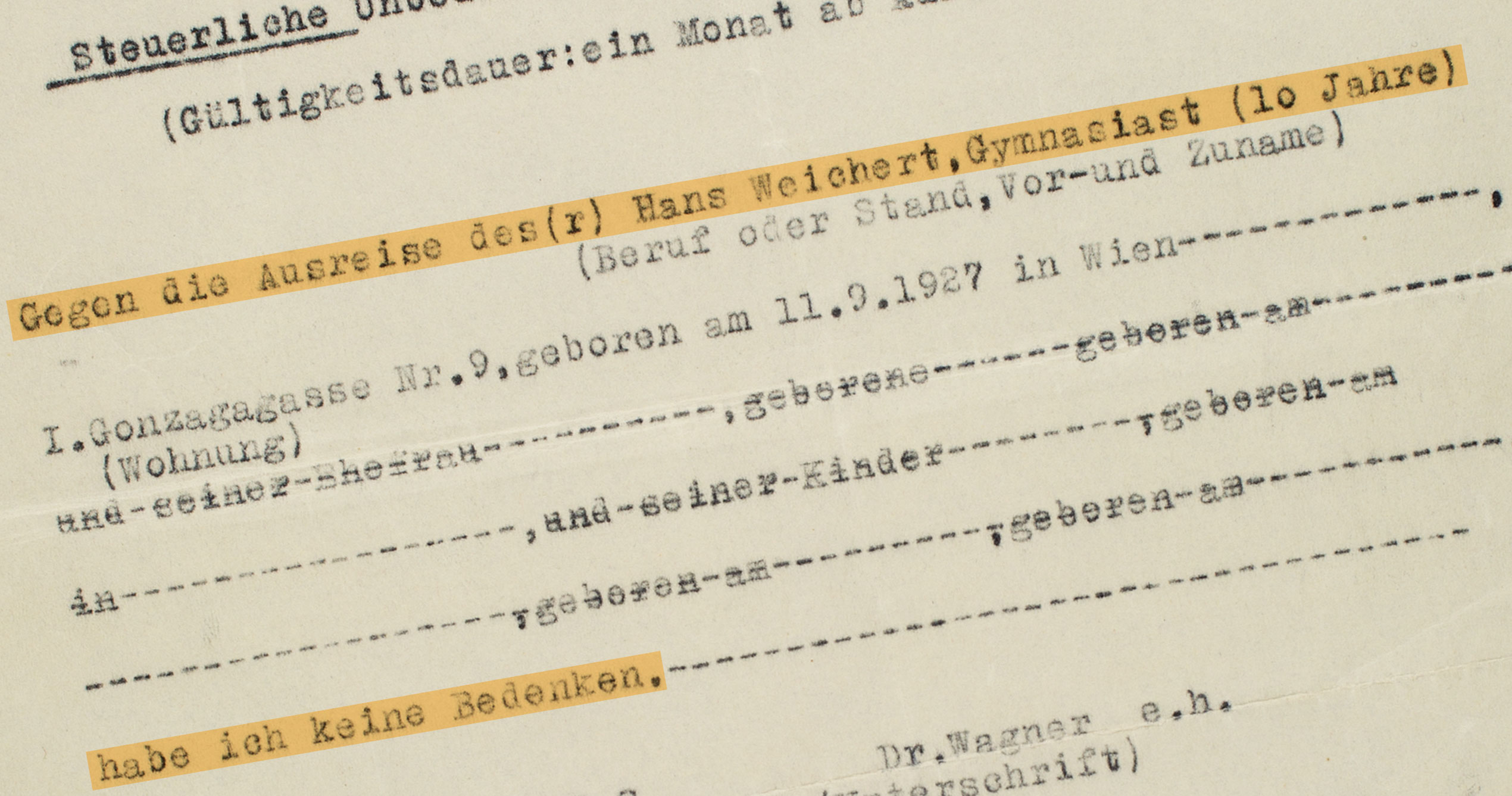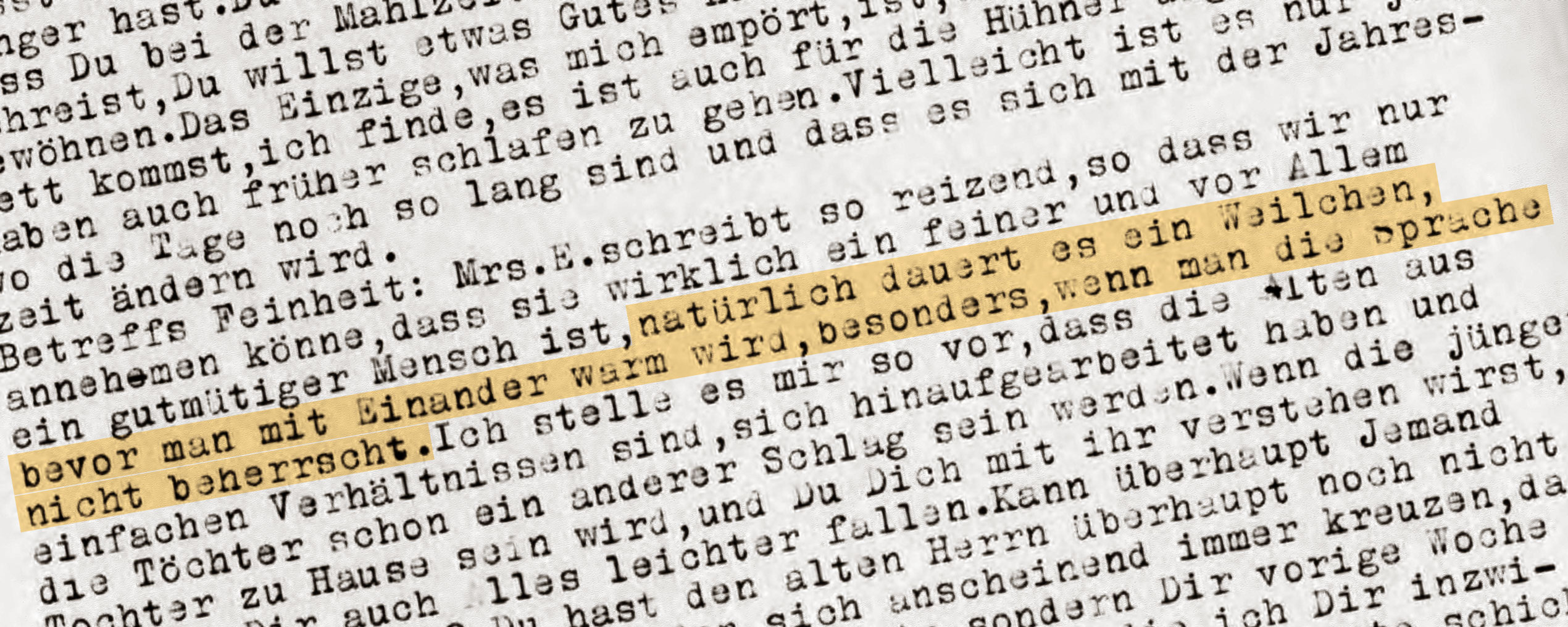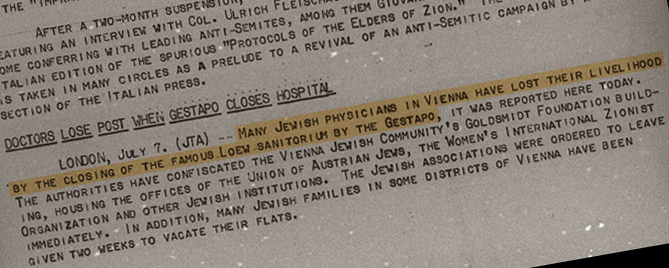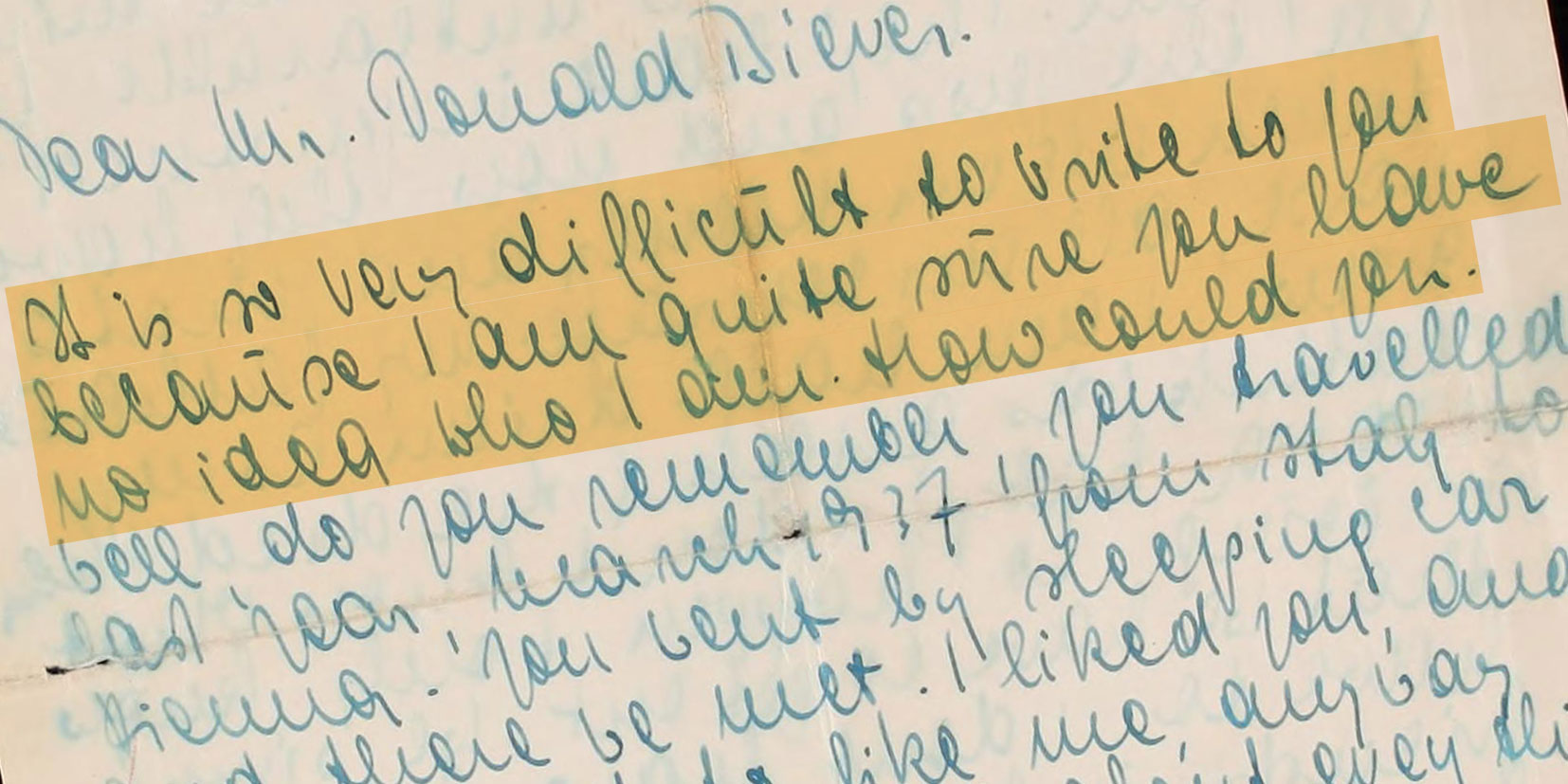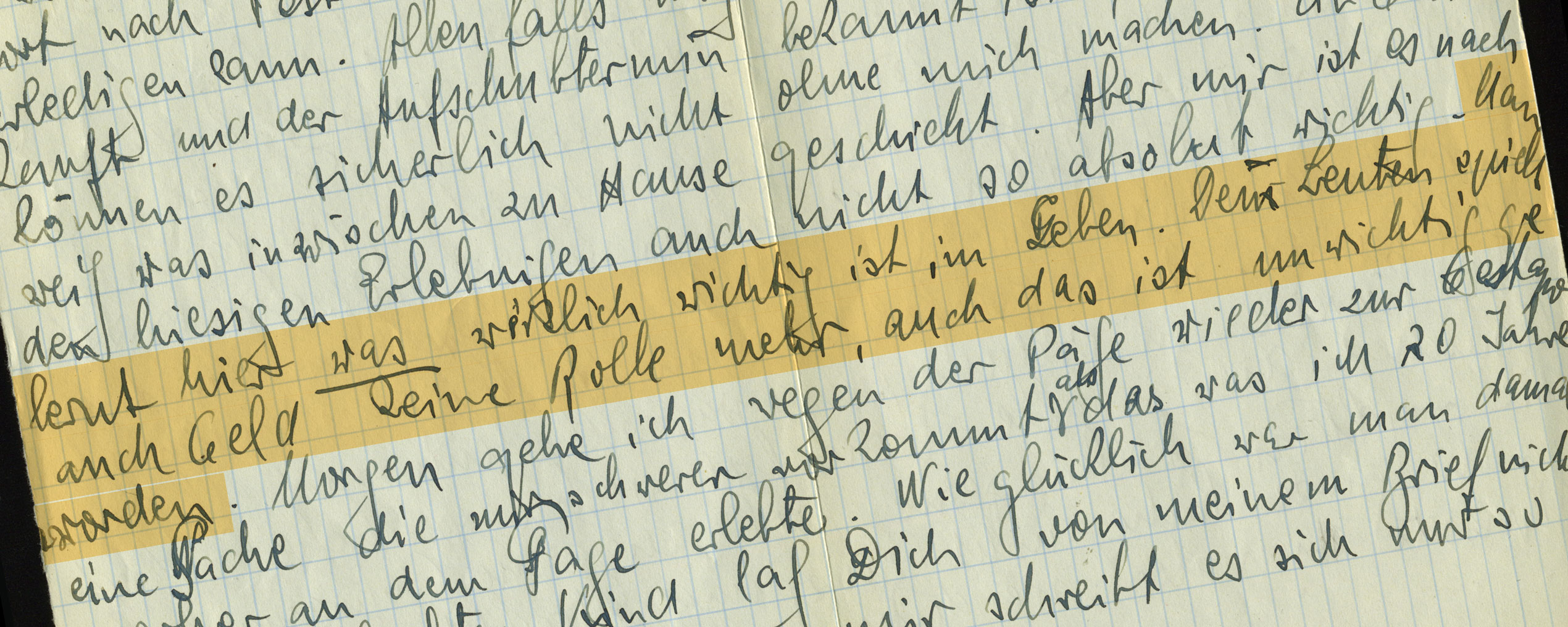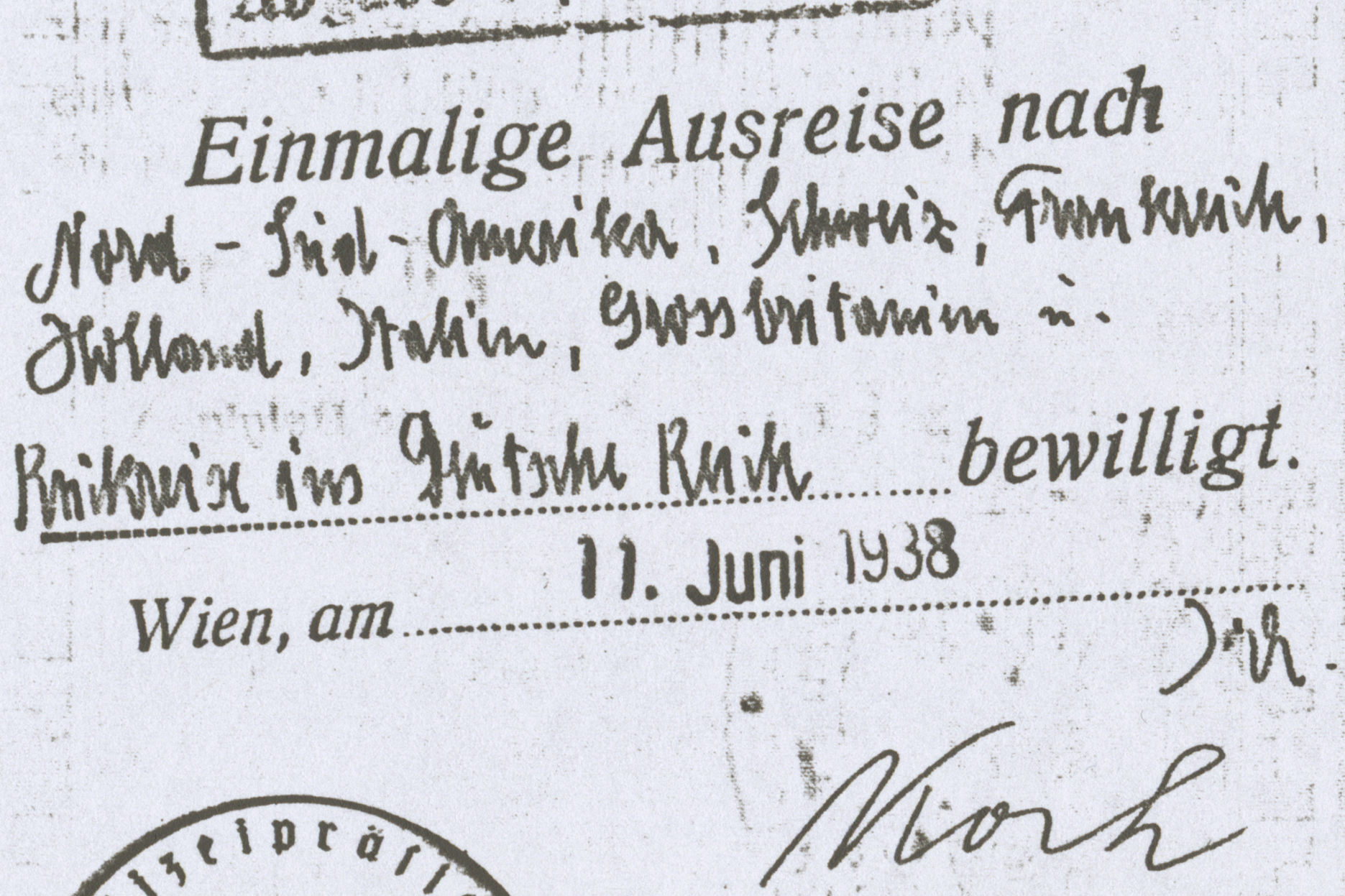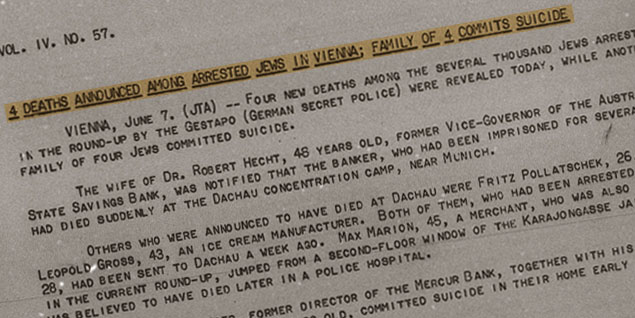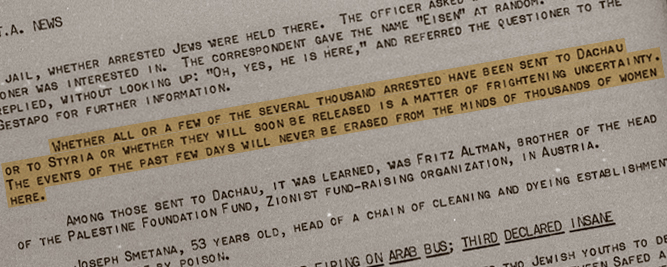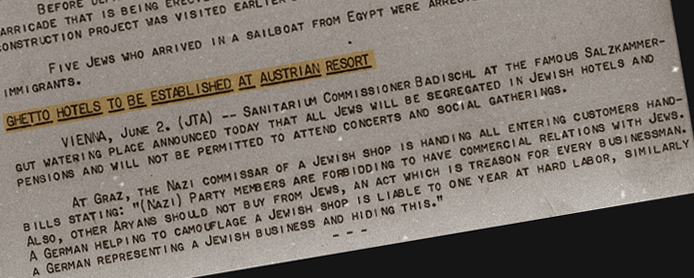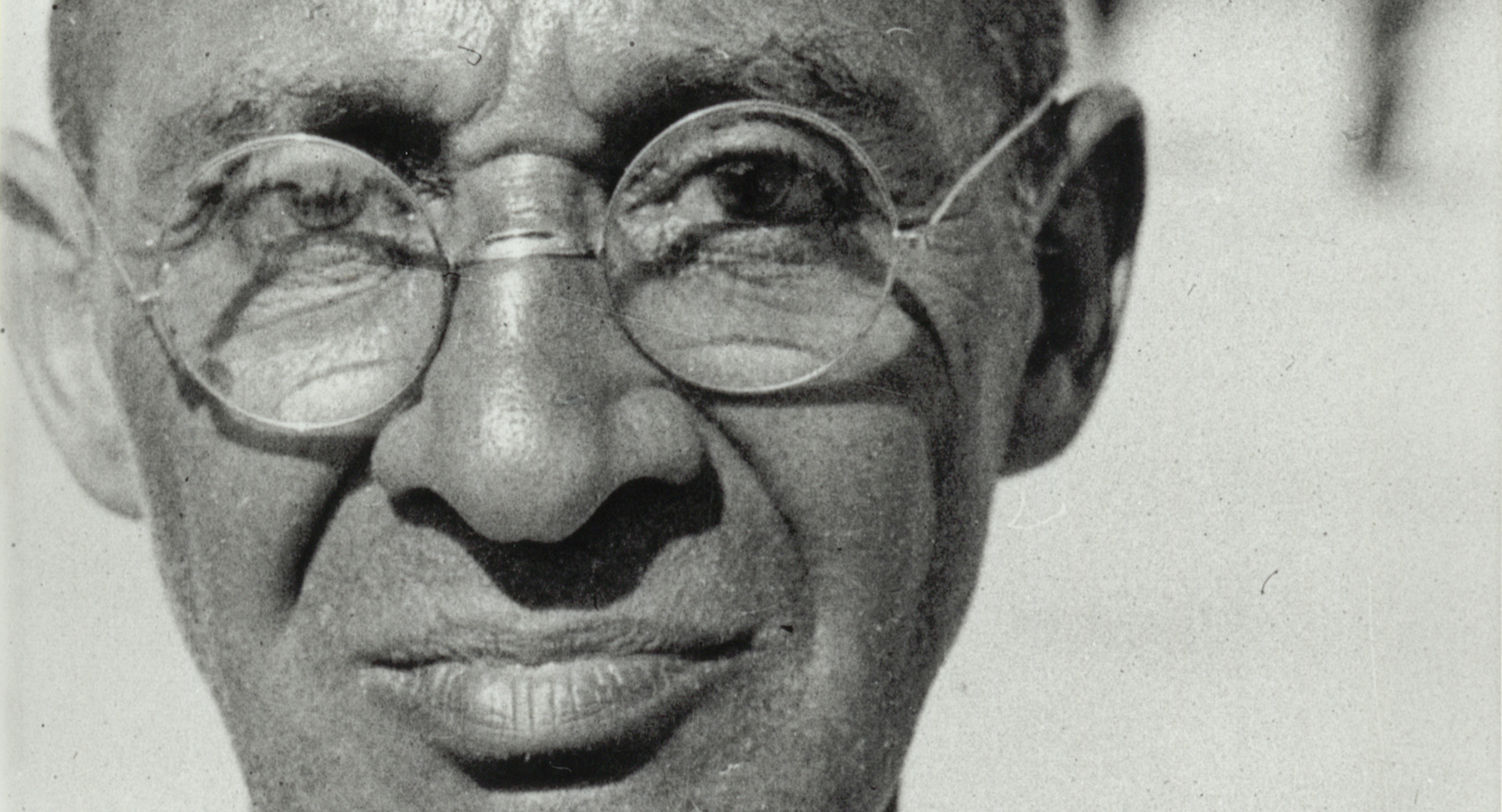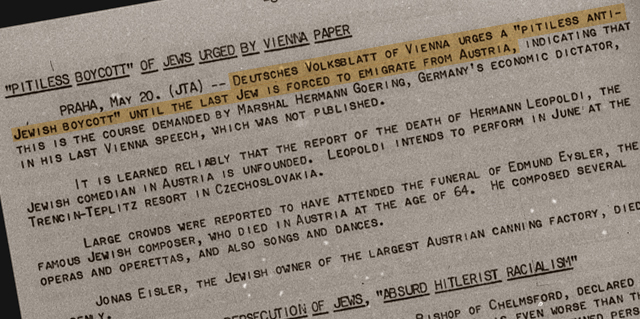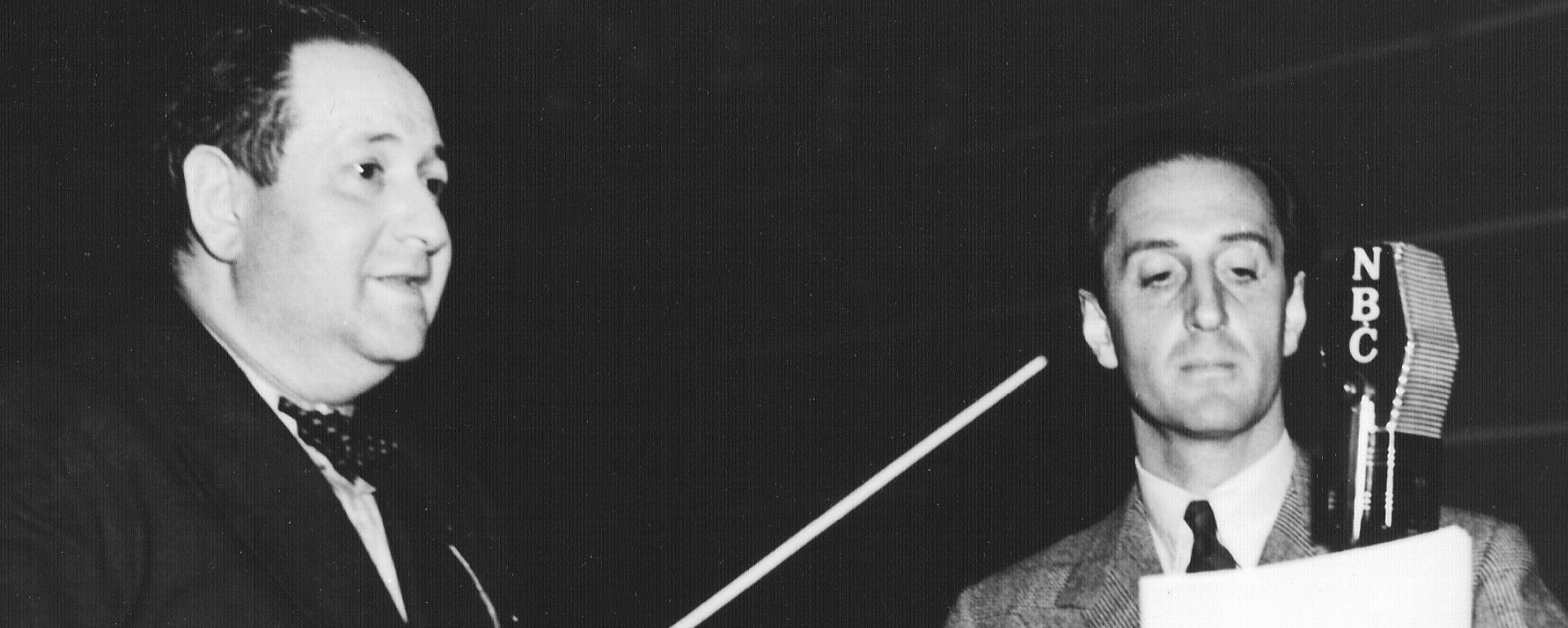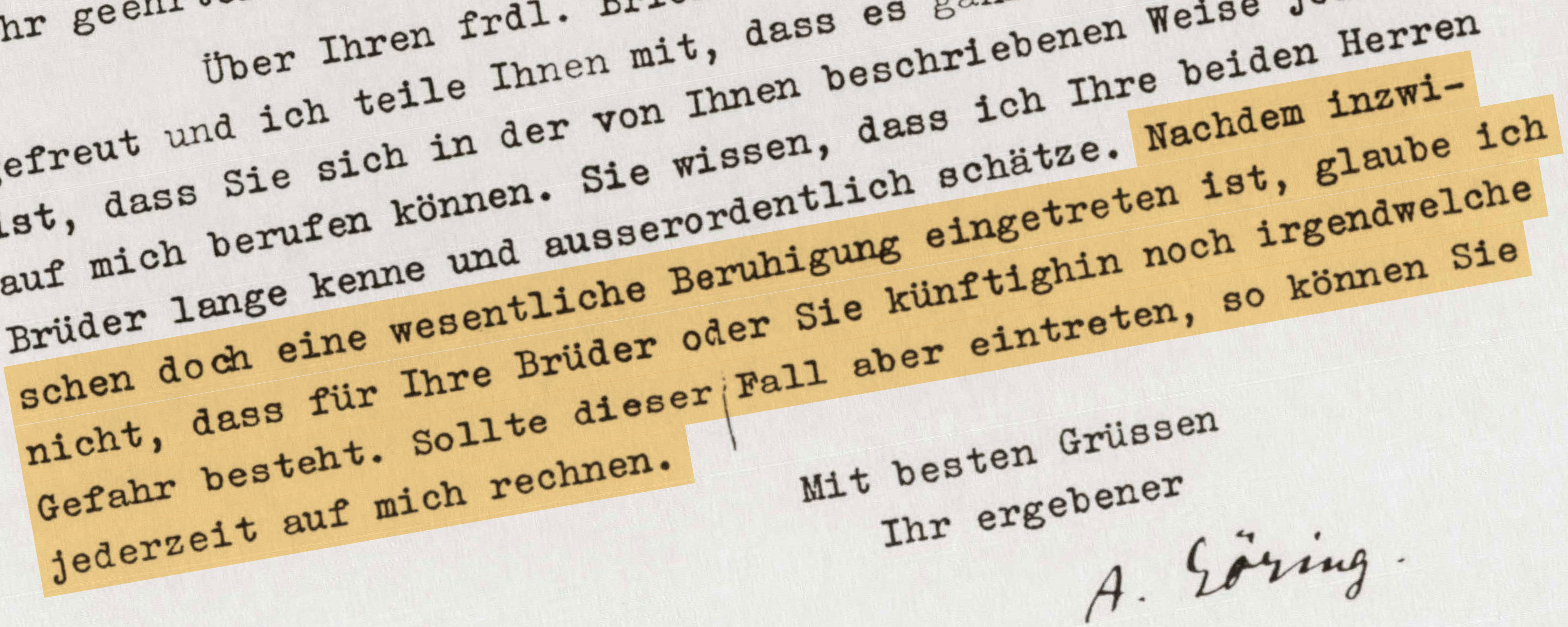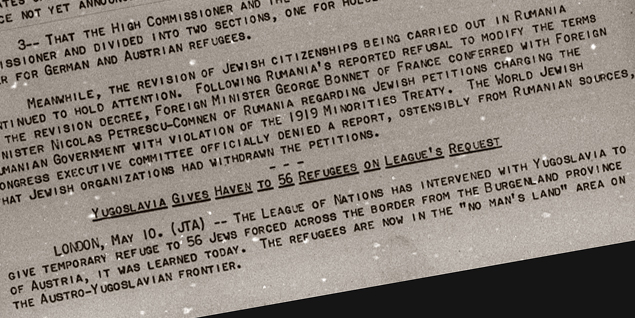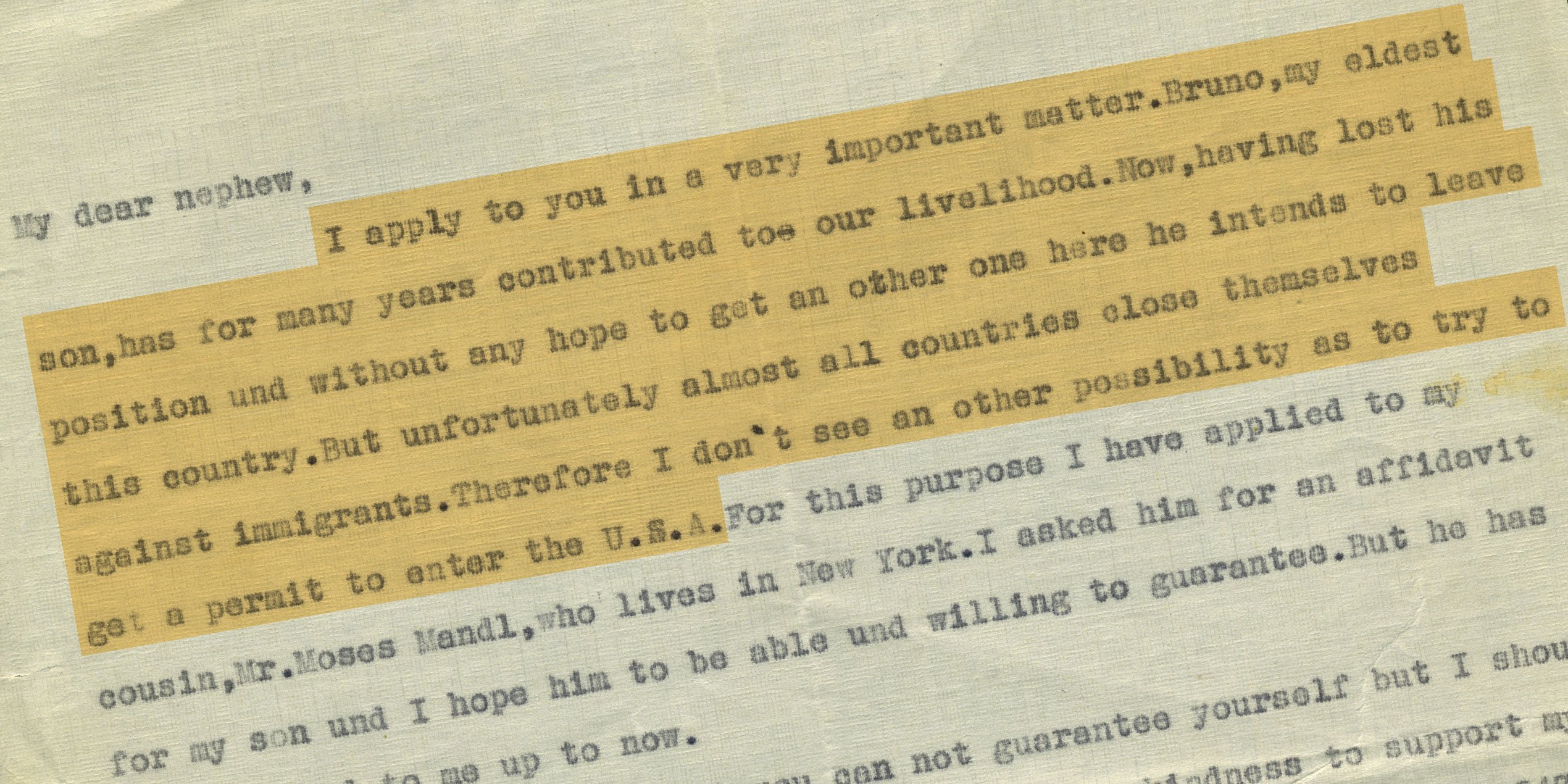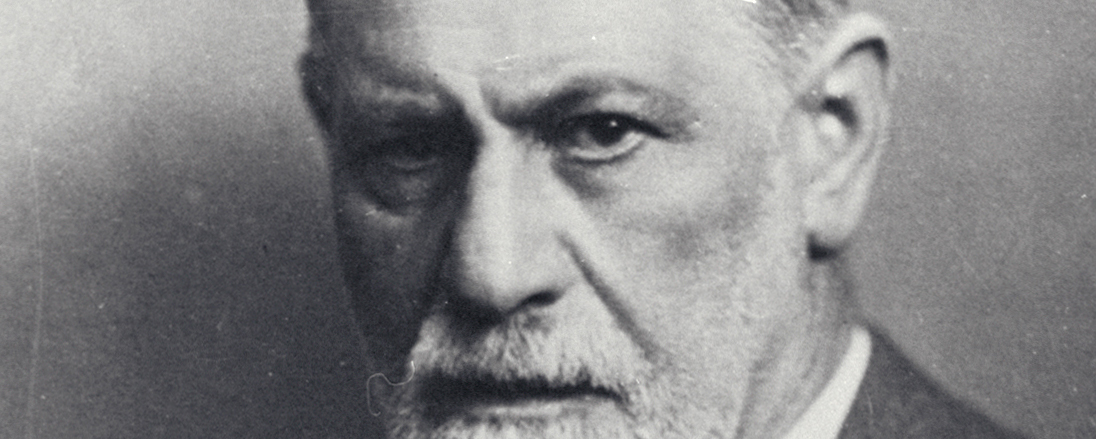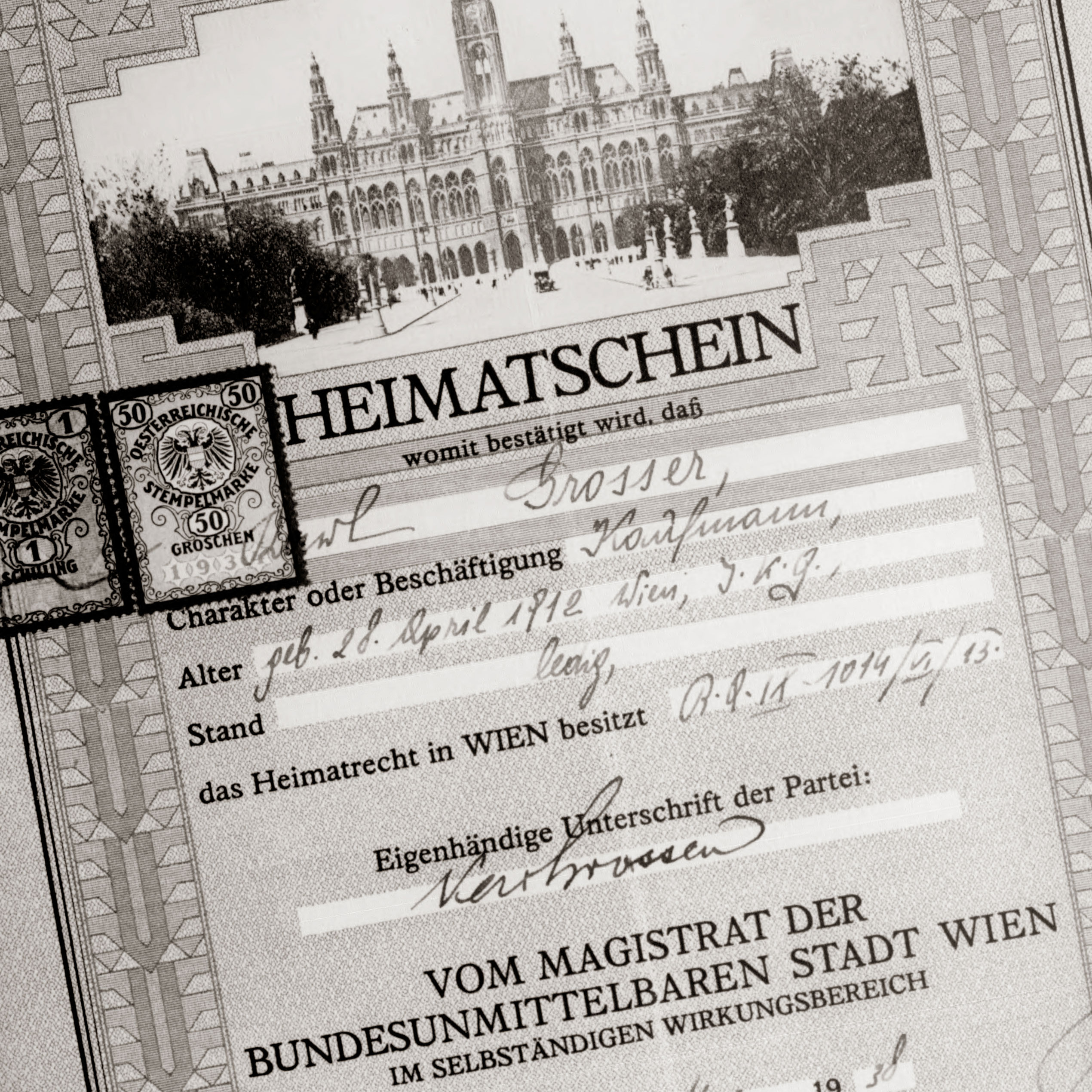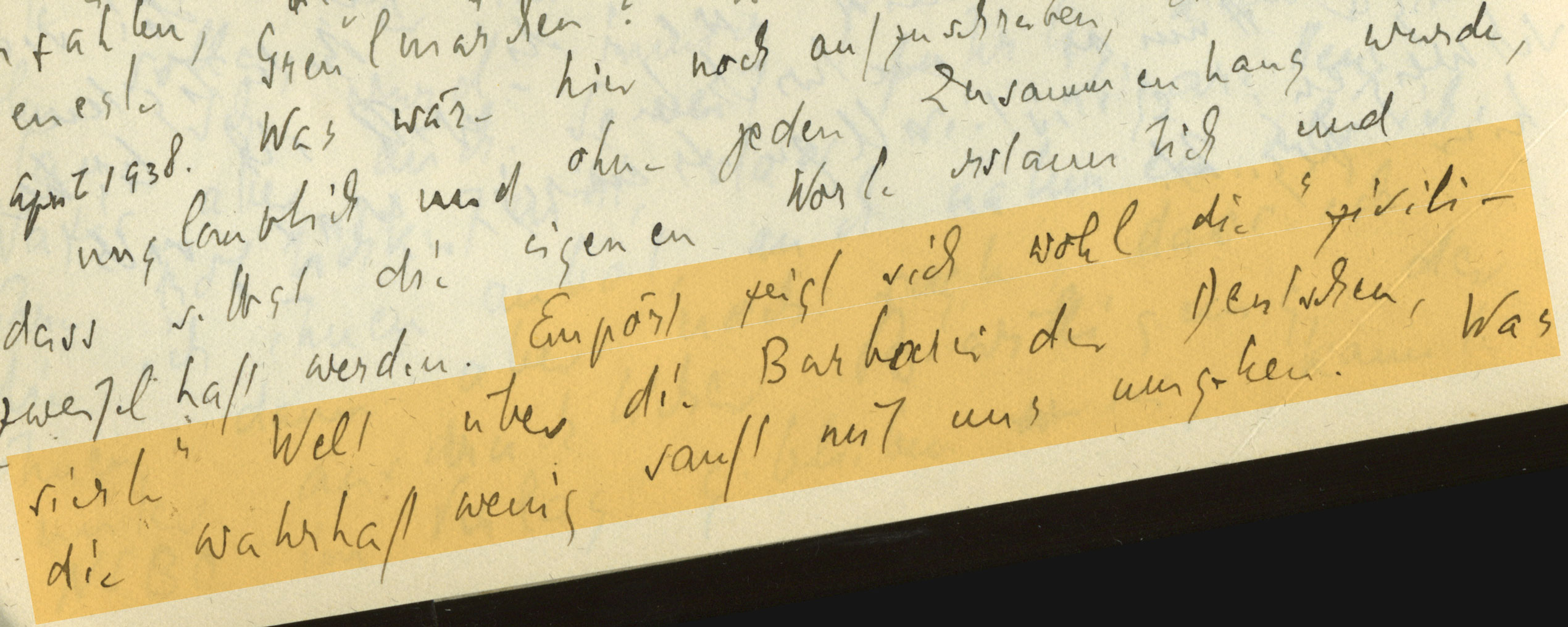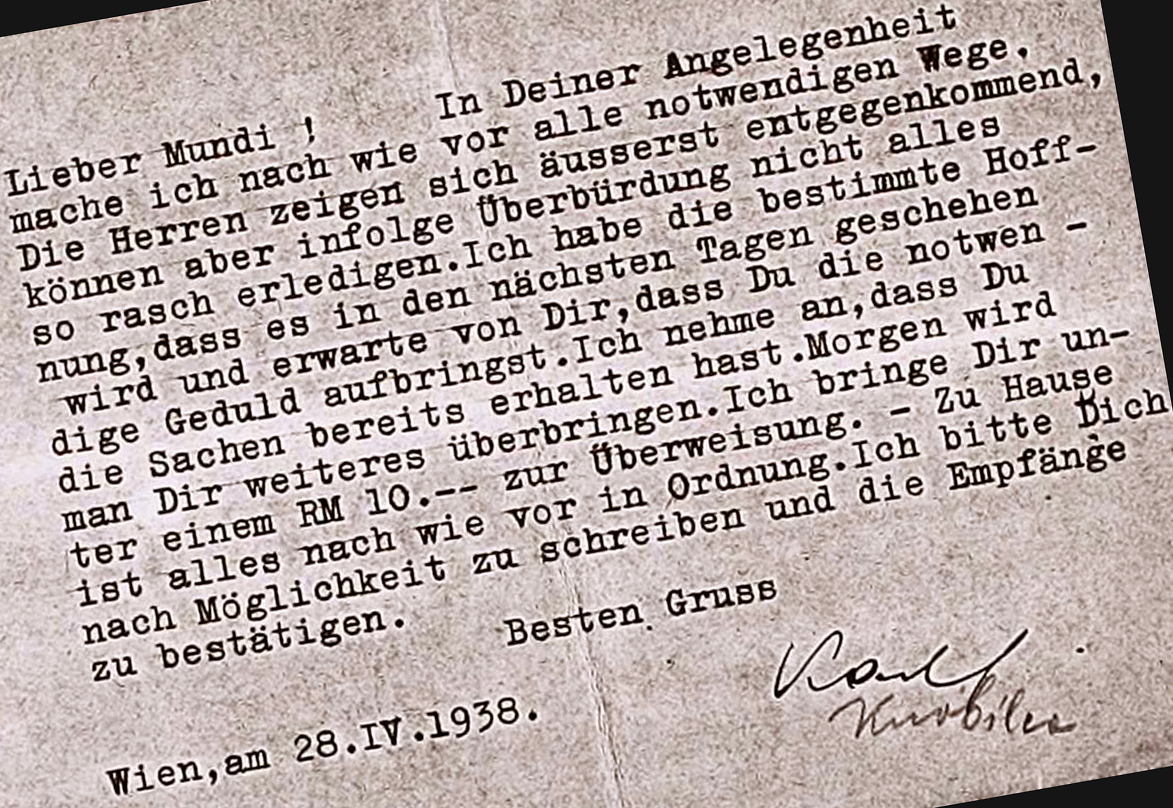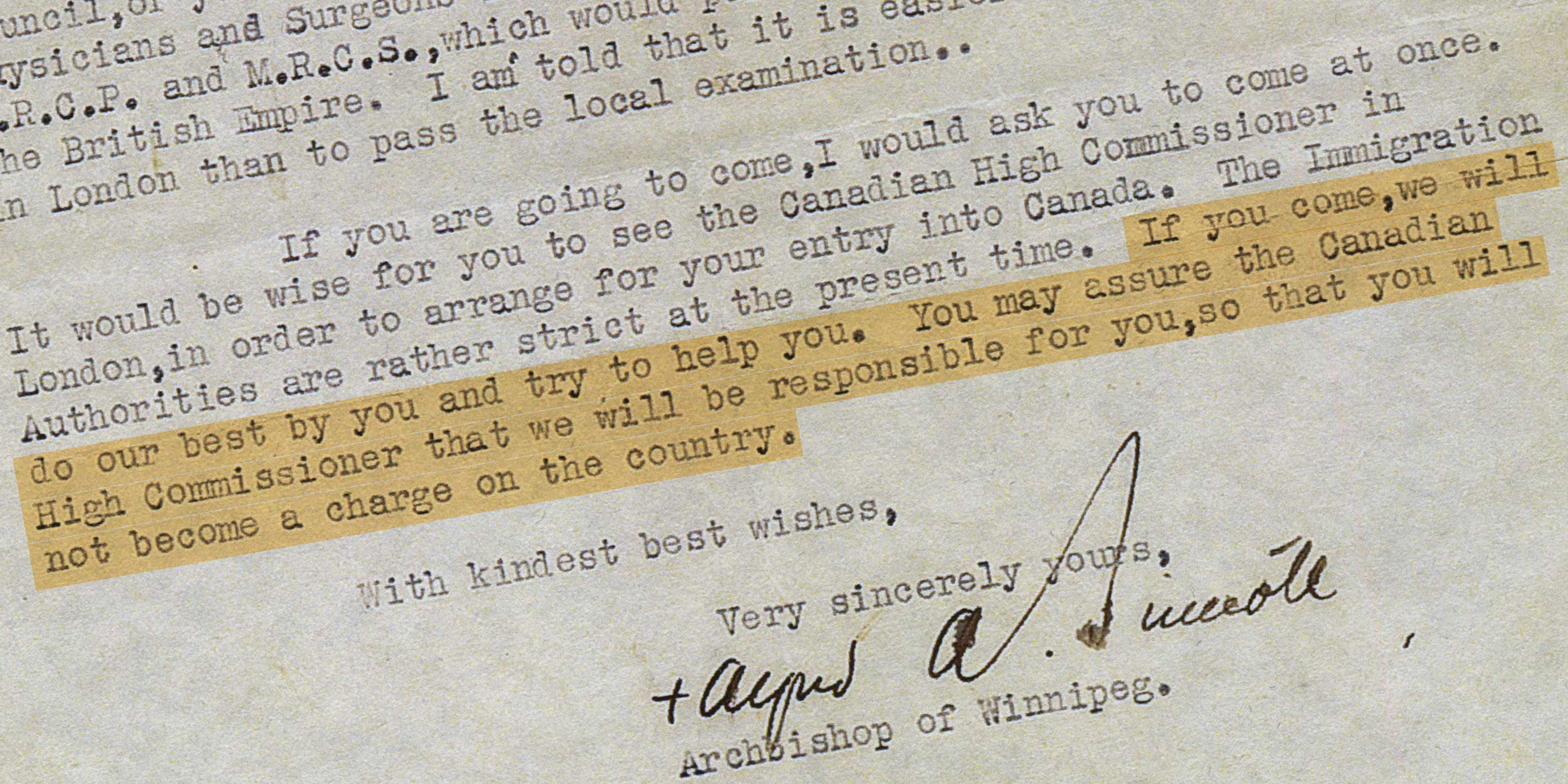No prejudicial information
A religious organization confirms they have no concerns regarding Edmund Wachs
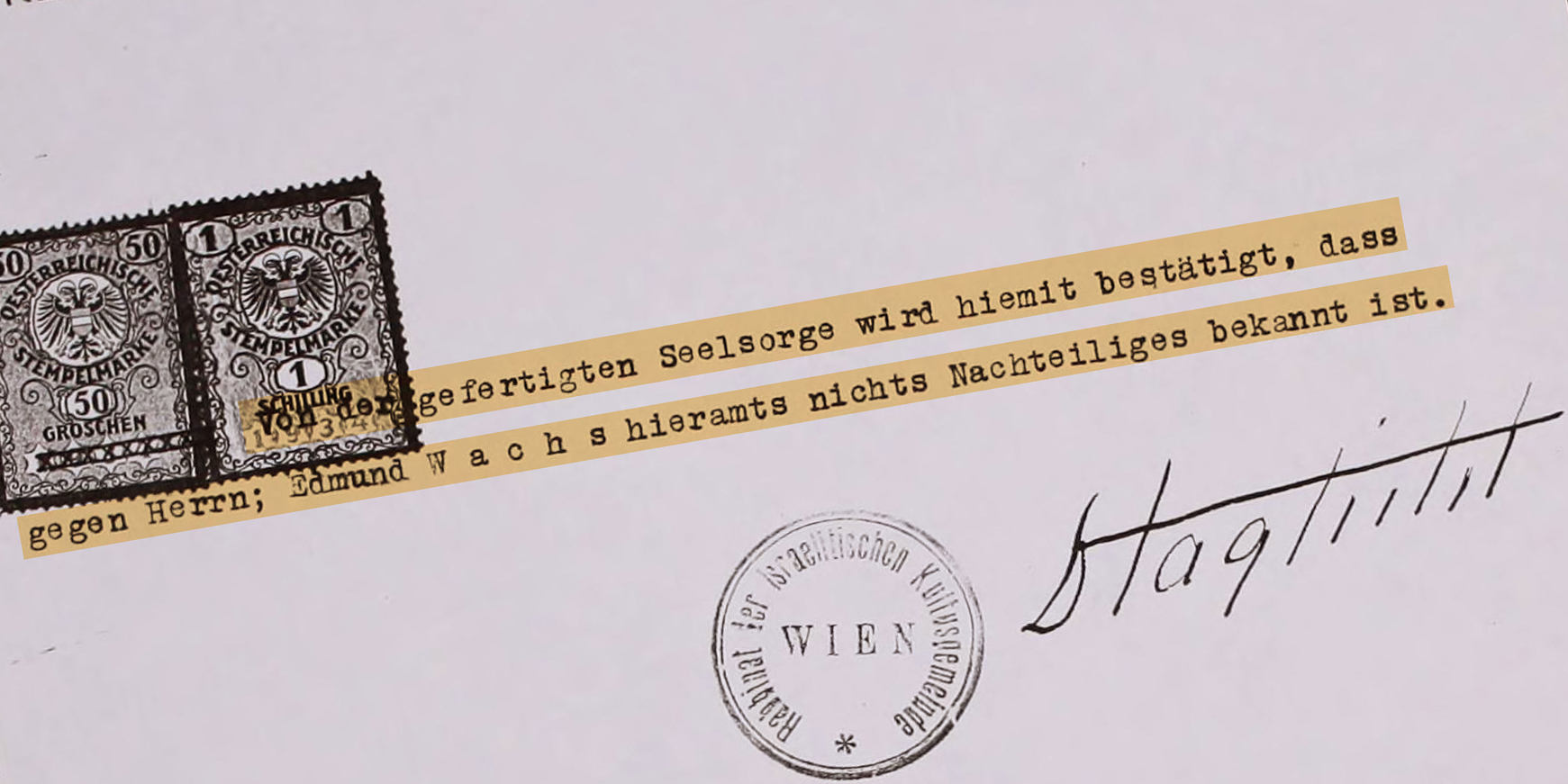
"The undersigned pastoral care agency hereby confirms that our office has no prejudicial information regarding Mr. Edmund Wachs."
VIENNA
This certificate, issued by the Rabbinate of the Vienna Israelite Community, was just one among a plethora of documents that Edmund Wachs had gathered in order to facilitate his emigration to the United States. Shortly after the Anschluss, Wachs was put in “protective custody,” a power handed to the Nazis by the “Decree of the Reich President for the Protection of People and State,” also known as the “Reichstag Fire Decree.” The Reichstag Fire of February 27th, 1933, an act of arson involving the German Parliament building in Berlin, served as cause and justification for this law. It was passed on the following day and legalized the arbitrary arrest of anyone suspected of lack of loyalty towards the regime. The law did not stipulate the exact elements of the alleged offence and was widely used against Jews and political opponents.
SOURCE
Institution:
Leo Baeck Institute – New York | Berlin 
Collection:
Edmund and Berta Wachs Collection, AR 25093 
Original:
Box 1, folder 2








































